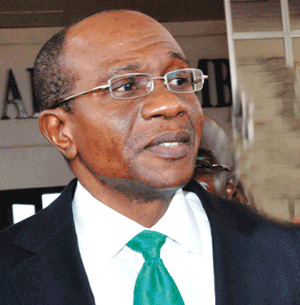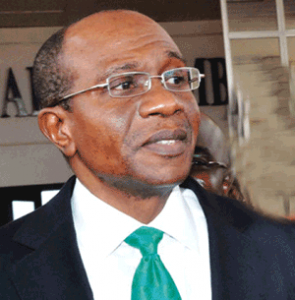The Central Bank of Nigeria (CBN) may have run out of steam trying to stabilise the naira even as interbank lending rates jumped to 43.5 per cent on Friday, December 12.
“Strong demand for the dollar from some offshore investors selling down their positions on the equity market has continued to exert pressure, but regular intervention by the apex bank has been able to provide some level of support for the naira,” one dealer said.
Besides, the Nigerian National Petroleum Corporation (NNPC) sold about $200 million to some banks on Wednesday, in the effort to reduce the volatility in the market.
In spite of these interventions, the CBN could not help the naira to a relatively stable level as volatility fluctuated between extremes of N182 and N184 in official market, and N185 and N187 at parallel market.
Although the local currency traded at N182.12 to the dollar on December 12 compared with N180.10 the previous week, it exchanged at the average of N185 to the dollar all through last week.
At the parallel market, it hovered around N185 and N188 to the dollar as bureau de change (BDCs) operators in Lagos had a field day across different locations where they plied their trade.
On Broad Street and other points on Lagos Island, Allen Avenue, and Awolowo Road axis of Ikeja, BDC operators offered to exchange at between N186 and N188 to the dollar.
However, dealers predict it is likely to trade within tight range this week, sustained by dollar flows from oil companies and intervention by the central bank.
Interbank lending rates rose sharply to 42.5 per cent on December 12 from 30 per cent last week, following a large CBN withdrawal to meet banks’ cash reserves requirement (CRR).
The bank has mopped up N868 billion from the banking system over the last two weeks to meet the CRR.
The apex bank last month hiked the CRR on private sector deposits with commercial lenders to 20 per cent, from 15 per cent, to support the local currency. It also raised interest rates by 100 basis points to 13 per cent.
Overnight rates spiked to 70 per cent on Tuesday, December 9 as banks scrambled for cash to cover their positions but eased by Thursday after N150 billion of treasury bills matured.
Analysts insist that the CBN risks destroying the economy as high interbank rates will constrain credit growth and could create bad loan problems for lenders.
The balance that lenders hold with the central bank closed at a debit of over N100 billion, compared with N45 billion in preceding week.
The secured Open Buy back (OBB) traded at 40 percent on December 12 compared with 30 percent last week, while overnight lending closed at 45 percent, against 30 percent last week.
The OBB rate is 27 percentage points higher than the central bank’s benchmark rate of 13 per cent.
A senior dealing member of the Nigerian Stock Exchange (NSE), who did not want his name on print, said the CBN and the managers of the economy have run out of ideas.
According to him, CBN Governor, Godwin Emefiele, should not have promised a gradual reduction of interest rates when he assumed office on June 2, saying he demonstrated poor understanding of the financial system in which he has been actively involved.
At the equities market, there were palpable anxiety over the fate of the market as performance indicators point towards another round of market crash if nothing is done to lift the sliding stocks market.
The NSE All Share Index recorded unprecedented loss by 7.42 per cent week on week (WoW) to close on Friday at 30,763.38, while Market Capitalisation depreciated by 7.42 per cent to close at N10.156 trillion. At this close, investors have lost over N4trillion this year.
Investors’ sentiment remained bearish all through the week and all the performance indices drifted lower with the exception of the NSE ASeM Index that rose by 2.05 per cent. And the market returned negative on all trading days last week to peg year-to-date (YtD) return at -25.57 per cent.













